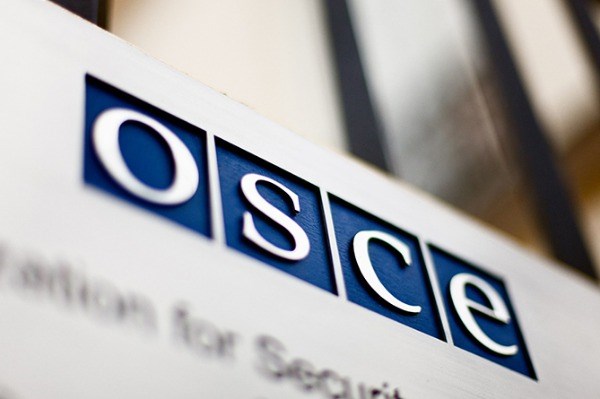The OSCE Parliamentary Assembly calls on Russia to return Crimea to Ukraine
The General Committee of the OSCE Parliamentary Assembly (PA) on Political Affairs and Security approved a draft resolution during a session in Minsk, which calls for the return of the Crimea to Ukraine.
The author of the document entitled "Enhancing mutual trust and co-operation for peace and prosperity in the OSCE region," is the deputy head of the Swedish delegation, Margaret Söderfelt. In the near future, the draft will be submitted for a general vote by the assembly. According to the regulations, after the discussion of the proposed resolutions is completed, the PA will adopt a final declaration, which will include the text of the approved documents. The Russian delegation voted against the initiative by the Swedes.
The resolution calls for "refraining from aggressive practices and repealing the decision on the illegal annexation of the Autonomous Republic of Crimea." The authors of the document believe that the parties to the conflict must stop fighting, refrain from using heavy artillery, and give full freedom of action to the Special Monitoring Mission.
The draft resolution mentions the risks of nuclear safety and the problem of non-proliferation of nuclear weapons. Thus, the authors are concerned about the current status of the START III and the INF Treaty. During discussions on the resolution, the Russians insisted on excluding articles on bilateral treaties. Parliamentarians pointed out those issues are the subject of Russian-American dialogue and are not within the jurisdiction of the OSCE. In addition, Moscow, to this day, unquestioningly fulfills their agreements on the reduction of strategic weapons. Despite objections, the text of the resolution was put to the vote of the General Committee on Political Affairs and Security in its original form.
In addition, the concerns of Swedish parliamentarians were aroused by the negative assessment of START III by the current US administration and the suspension of the agreement on plutonium utilization. At the same time, the Russians have repeatedly drawn attention to the fundamental importance of the Treaty for the Further Reduction and Limitation of Strategic Offensive Arms. For example, the Foreign Ministry described START III as a "mutually beneficial instrument" and emphasized its importance in maintaining a strategic balance.
In a speech before the representatives of the European parliaments, Söderfelt drew attention to the fact that the resolution submitted by her condemns the attempts to exert pressure on the members of the OSCE monitoring mission in the Donbas. According to her, "in certain areas of the Donetsk and Luhansk regions, which are under the control of Russian hybrid forces," observers are harassed, threats are directed at them, and their activity constantly encounters resistance from the representatives of the DPR and LPR.
The politician urged the Russians to create the proper conditions for the work of the mission and to "take practical measures" to ensure the security of the OSCE staff.
The project by the Swedish parliamentarians was approved against the backdrop of a debate over another document. The Ukrainian delegation submitted a resolution for consideration called, "Restoration of the sovereignty and territorial integrity of Ukraine," which obliges the members of the assembly to respect "sovereignty, independence, unity, and territorial integrity of Ukraine." The text mentions the Crimea and Sevastopol, which, according to the authors, are "temporarily occupied" and also condemns the "hybrid aggression" of Russia against Ukraine.
The draft resolution excludes the recognition of the passports of residents of the LPR and DPR, and calls for the return of "local, state, and private economic entities under Ukrainian jurisdiction."
